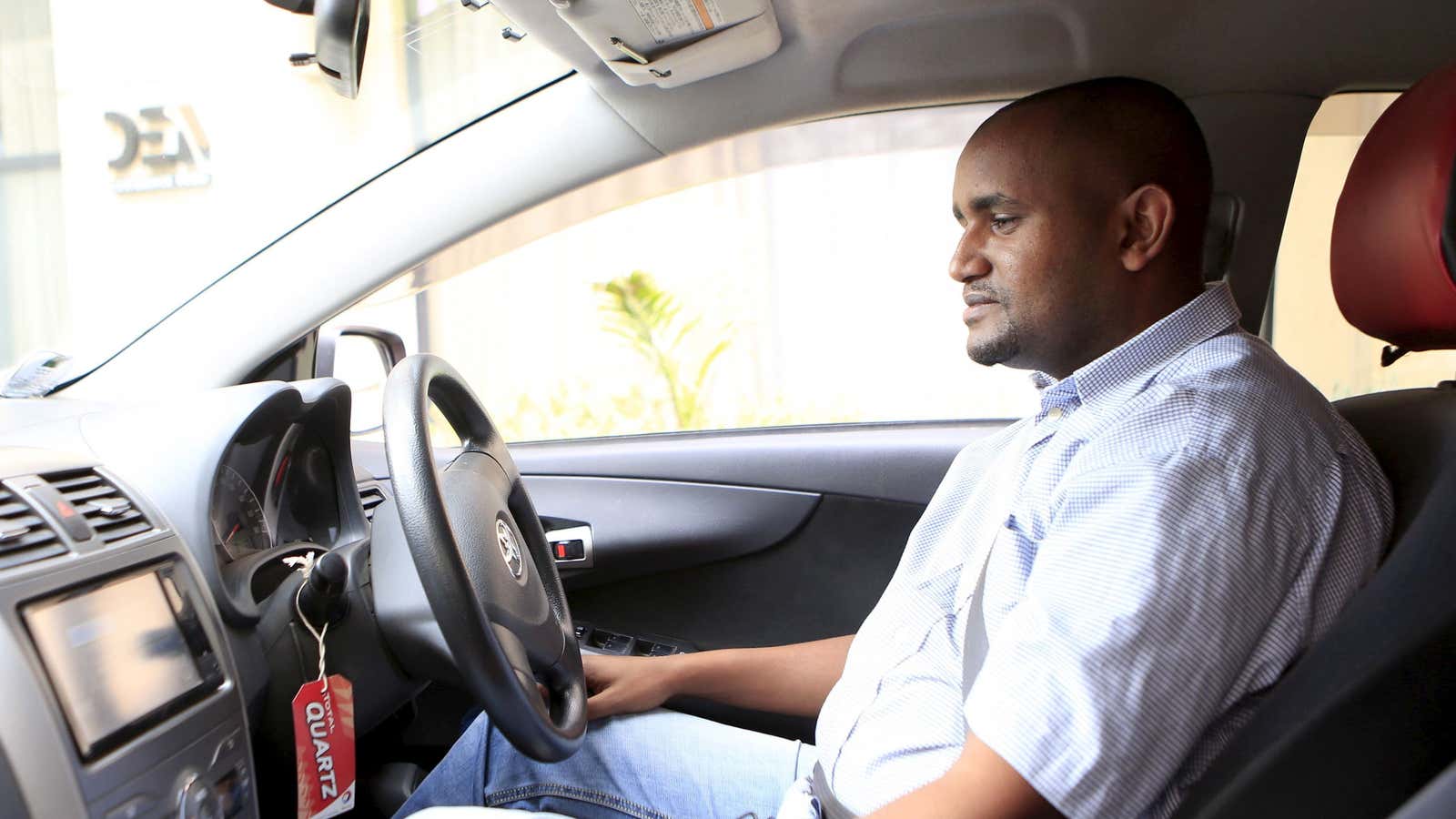Ride-hailing car drivers in Kenya have signed a deal with their service providers and the government in the latest tussle over poor pay and growing local competition.
A nine-day strike by drivers ended this week after signing an agreement to ensure better pricing for drivers and improve welfare on the job. A section of drivers from five taxi hailing companies including Uber and Taxify took part in the industrial action which started in early July. The agreement would cushion drivers from price differentials during fee changes and promotions, actively involve relevant authorities including the ministry of transport in future negotiations, and engage private security in case of emergencies and breakdowns.
“We agreed that nobody can change the pricing unilaterally. The process should be consultative and cushion drivers,” Paul Maringa, the principal secretary from the state department of transport, said.
An Uber spokesperson told Quartz the company is “happy to sign” the agreement, but that didn’t mean it would immediately adjust fares. In light of the feedback and concerns, the firm also said it is completing “a deeper study of driver economics” to ensure fares are correctly priced.
The latest tussle over pay illustrates the challenges facing rival e-hailing firms as they aggressively compete for the same pool of drivers and customers in major urban centers. In Kenya alone, Uber and Taxify face Mondo, Safaricom’s Little Cab, Pewin Cabs, and Fone Taxi. And given that most large sub-Saharan African cities are overwhelmed by unemployment and difficult economic environments, the debate over driver wages has become a contentious issue. So while slashing fares for customers has been welcomed, the reduction of revenue for drivers with high commission fees has led to violent protests and strikes.
The strike also showcases how Kenya is the latest country where the ride-hailing services’ plans for regional and global domination are being halted by local regulations and grievances. This is especially the case with Uber whose relentless expansion, strong brand, and larger driver network has won it customers particularly among nations with young, digital-savvy middle classes. But its expansion has also won it, at times violent, enemies among the local taxi companies worried for their livelihoods in cities with few jobs.
In February, Uber pulled out of Morocco citing lack of “clarity about integrating applications like Uber into the existing transport model.” It is also currently fighting a court decision in Egypt that revoked its license and accused it of flouting regulations and short-changing drivers.
As the competition heats up and disputes become all too common, companies like Uber are also being forced to rethink their African strategy and be conscious of their spending. Japan’s Softbank, Uber’s largest shareholder, has urged the company to focus on its core markets in the US, Europe, Latin America, and Australia—putting its place in Africa in doubt ahead of its initial public offering in 2019.




